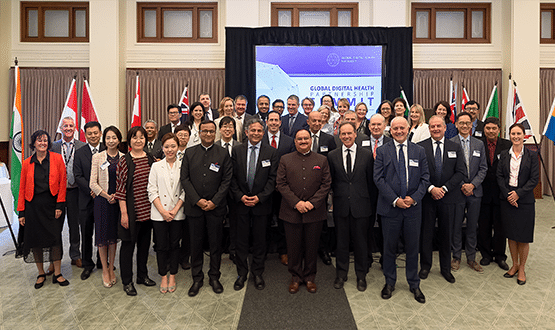Thirteen countries sign up to Global Digital Health Partnership
- 28 March 2018

Thirteen countries, including the UK, have signed up to a global network designed to support the use of digital technology in modern healthcare.
The Global Digital Health Partnership (GDHP) is a network made up of governments, digital health agencies and the World Health Organization. The aim is to share policy and evidence that supports members to deliver better digital health services.
The partnership formally launched at a summit held in Canberra last month, organised by the Australian Digital Health Agency.
Its chief executive Tim Kelsey has previously served as the national director for patients and information at NHS England in 2012 and national information director in health and care and chair of the National Information Board in 2014.
“Australia and its international partners can learn from each other and share information about what has worked in their health settings, and collaborate on initiatives together that will support digital health systems working more effectively in their countries,” Kelsey said.
“The partnership will help deliver actionable policy and programme outcomes to both domestic and international agendas.
“It is important that guidelines created by governments and other agencies are co-produced with the needs of innovators, industries, clinicians and the community,” he continued. “The GDHP activities should consider the needs and input of these sectors to improve the delivery of digital health service.”
Over the coming year, the GDHP plans to collaborate on topics including connected and interoperable healthcare, cyber security, and digital health evaluation.
The 13 countries in the partnership are Austria, Australia, Canada, India, Indonesia, Italy, New Zealand, Saudi Arabia, Singapore, South Korea, Sweden, the United States and the United Kingdom.
Back in January 2017, Digital Health News reported on how global health IT and digital health venture capital funding topped £4.2 billion ($5 billion) for the first time in 2016.




